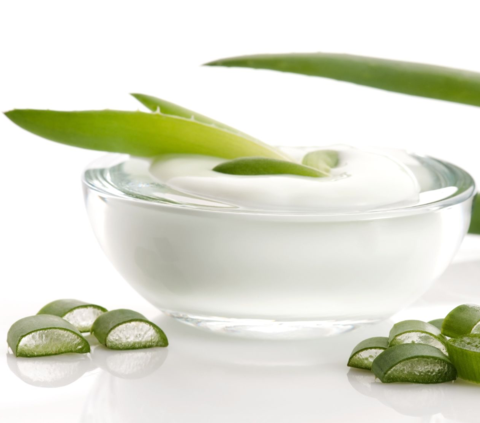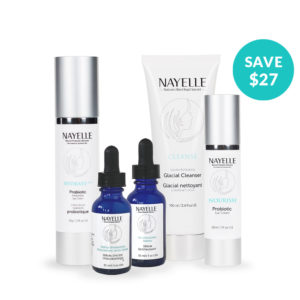Probiotics in Goat Milk Kefir
First described by tribes in Russia, “kefir grains” are actually not grains at all, but are a delicate balance of yeast and bacteria. Able to ferment milk in around 24 hours, kefir grains can transform raw milk into a super food probiotic drink (kefir), a naturally-carbonated, refreshing beverage that has several key medicinal benefits.
Rich in Lactobacillus acidophilus and Bifidobacterium bifidum, kefir also provides significant amounts of lactic acid bacteria and beneficial yeast. In fact, the cocktail of beneficial microbiota within kefir makes it one of the most powerful probiotic foods on the planet.

A milky beverage originating in Russia and Turkey, kefir is thought to be an even better source of probiotics than yogurt. Made by fermenting goat, cow or sheep’s milk with kefir “grains,” this drink contains ten to 20 different types of bacteria. The lactic acid bacteria turn the lactose in the milk into lactic acid, so kefir tastes sour like yogurt, but has a thinner consistency.
According to research published in the American Journal of Dietetics, kefir has been proven to help ease lactose intolerance in some adults. Kefir is also rich in antioxidants. Look for a good, organic version at your local health food store.
The Benefits of Kefir
Easily digested, it cleanses the intestines, provides beneficial bacteria and yeast, vitamins and minerals, and complete proteins. Because kefir is such a balanced and nourishing food, it contributes to a healthy immune system and has been used to help patients suffering from AIDS, chronic fatigue syndrome, herpes, and cancer.
 Its tranquilizing effect on the nervous system has benefited many who suffer from sleep disorders, depression, and ADHD (attention deficit hyperactivity disorder).The regular use of kefir can help relieve all intestinal disorders, promote bowel movement, reduce flatulence and create a healthier digestive system.
Its tranquilizing effect on the nervous system has benefited many who suffer from sleep disorders, depression, and ADHD (attention deficit hyperactivity disorder).The regular use of kefir can help relieve all intestinal disorders, promote bowel movement, reduce flatulence and create a healthier digestive system.
In addition, its cleansing effect on the whole body helps to establish a balanced inner ecosystem for optimum health and longevity. Kefir can also help eliminate unhealthy food cravings by making the body more nourished and balanced. Its excellent nutritional content offers healing and health-maintenance benefits to people in every type of condition.
Kefir contains high levels of vitamin B12, calcium, magnesium, vitamin K2, biotin, folate, enzymes and probiotics. Because kefir does not have standardized nutrition content, the content values can vary based on the cows, cultures, and region where it is produced. Yet even with the range in values, kefir has superior nutrition.
Did you know that over 75% of your immune system is housed in your digestive system? Essentially, trillions upon trillions of “good” bacteria and fungus kill the “bad” microorganism, which keeps you alive and well.
So what happens when you take antibiotics or regularly use antibacterial lotions and soaps?
You literally kill the good bacteria and the bad ones take over. This, in turn, disturbs the symbiosis (balance) of your micro biome which will lead to digestive issues and immune reactions. Studies have linked everything from autism to most chronic diseases to leaky gut syndrome and improper digestion. Bottom line is that if you can’t absorb the nutrients in your food because you don’t have the proper bacteria balance in your gut, your body will never run on all cylinders because it lacks the fuel.

Because of kefir’s unique set of nutrients it has been show to benefit the body.
- Fights Cancer: Consumption of fermented foods has been shown to kill several different types of cancerous tumors in animal studies. The Journal of Dairy Science, for example, published a study that evaluated the immune cells in mice and discovered that regular kefir consumption helps stop breast cancer growth.
- Supports Detoxification: “Mutagens” are various agents that can literally alter your DNA and can be found everywhere in our environment.Aflatoxins, for example, are food-born toxins created by mold and can be found in many ground nuts (which is why peanut butter causes allergies and immune reactions), crude vegetable oils (like canola, soybean, and cottonseed), and grains (wheat, soy, and corn).Being rich in lactic acid bacteria, kefir can literally bind (kill) aflatoxins and other funguses, which helps preserve healthy genetic expression.
- Boosts Immunity: Next time you get sick, think twice about taking an antibiotic and drink kefir instead. A study out of University College Cork in Ireland compared Lactobacillus probiotic preparations, and compared them to conventional antibiotics in three animal models that are similar to humans. They discovered that, “In all three animal diseases we observed a positive effect in that the animals were significantly protected against infection.”In fact, the researchers discovered that probiotics worked as well as or even better than antibiotic therapy in not only eliminating the infectious agent, but in resolving symptoms.
- Builds Bone Density: A 2014 study published in the journal of Osteoporosis International found that consuming kefir benefits bone density and can reduce the risk of osteoporosis. The researchers found kefir works by increasing the absorption of bone building minerals of calcium and magnesium. The probiotics in kefir improve nutrient absorption and the dairy itself contains all of the most important nutrients for improving bone density including phosphorus, calcium, magnesium, vitamin D and vitamin K2.
- Heals IBS and IBD: Because of the high doses of probiotics including the strains of lactobacillus and bifidobacterium kefir is also an effective natural treatment for irritable bowel syndrome. A study published in a Canadian medical journal found that probiotic rich foods, including yogurt and kefir, can help heal IBS and reduce bowel inflammation.
- Allergies and Asthma: In a recent study published in the Journal of Immunology, kefir was found to have both positive effects on allergies and asthma. In the study, kefir significantly suppressed inflammatory markers of interleukin-4, T-helper cells and IgE immunoglobulins. The researchers stated that kefir has strong anti-inflammatory properties that could prove useful in the prevention of asthma.
- Improves Lactose Intolerance: It may sound crazy, but yes fermented milk products like kefir can help people with milk-related lactose intolerance. To grip your brain around this, you have to keep in mind that fermentation changes the chemical make-up of foods and, as in the case of fermented milk; kefir is relatively low in lactose.
Additionally, if you struggle with lactose problems, you may want to try adding kefir to your diet in small amounts because a study in the Journal of the American Dietetic Association showed that, “Kefir improves lactose digestion and tolerance in adults with lactose mal absorption.” As a disclaimer: although I have found most people do very well with goat’s milk kefir a small percent of people may still have issues with dairy. If you have had lactose intolerance, my advice is to try it first by placing a small drop of the kefir on the inside of you arm or wrist and let it dry. Then wait 24 hours and see if you have any inflammation. If you do, then steer clear of it. But if not, then try adding just a drop or two to a beverage or some food and see if you have any reaction. You can then increase the amount until you are certain that you are not reacting to it.

KEFIR IN SKINCARE
Cream kefir makes a nourishing face cleanser, moisturizer, exfoliating mask and offers a wonderful boost to your overall skincare regimen. Combine it with lavender essential oil, or any other desired oil, and you’ll not only feel pampered you’ll get plenty of beneficial microbes in the process.
What makes dairy kefir so beneficial?
Each one of us carries a unique set of microbes on our skin. An imbalance in this microbial community can lead to all sorts of disorders such as psoriasis, acne, and seborrhea. In addition to the 30 or more strains of probiotics, kefir is loaded with lactic acid, which is one of the alpha hydroxy acids. Many expensive skincare products contain AHAs because these acids, naturally derived from foods, increase blood flow to the skin helping to minimize fine lines and wrinkles.
Kefir contains alpha hydroxyl acid (AHA) which reduces signs of aging such as the dreaded wrinkles. It is a form of lactic acid which harmonizes with our skin and hair’s acidity. This lactic acid in kefir dissolves the lipids that old skin cells hold together and helps remove dead skin cells. The alpha hydroxyl acid in kefir also reduces the appearance of freckles and scar tissue. So kefir can help improve the overall feel of your skin and bring out a new radiance.

